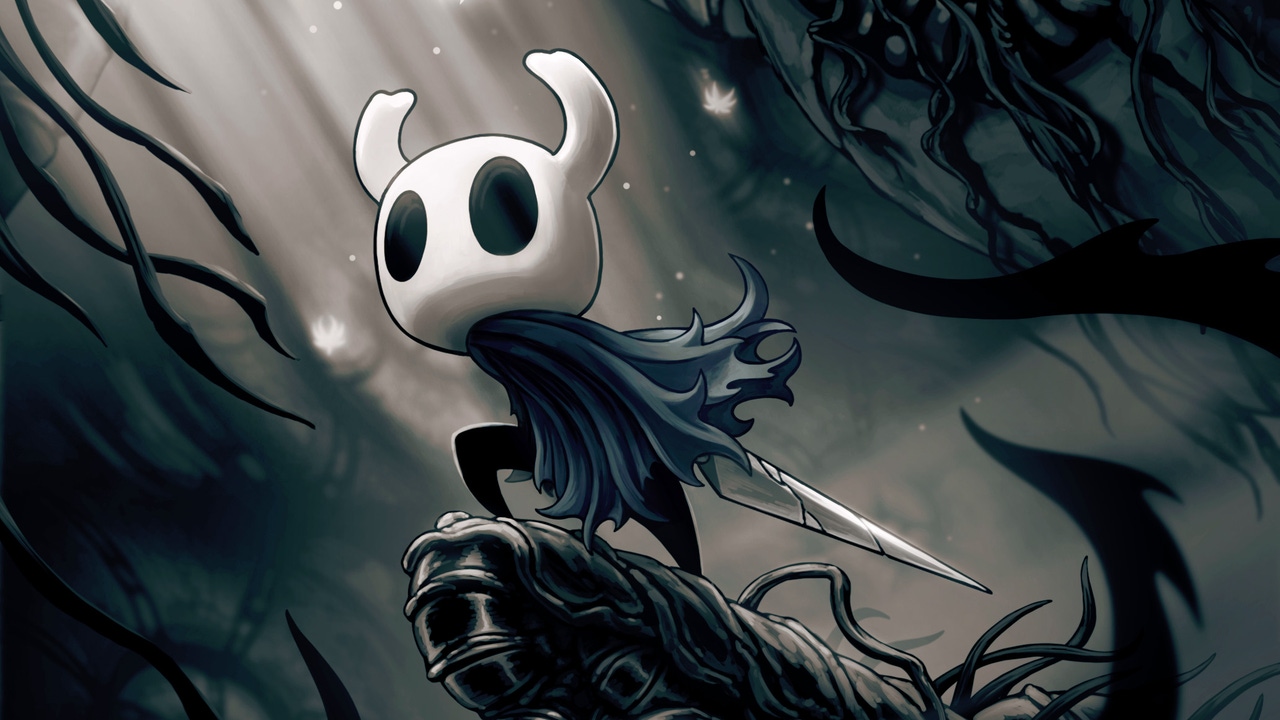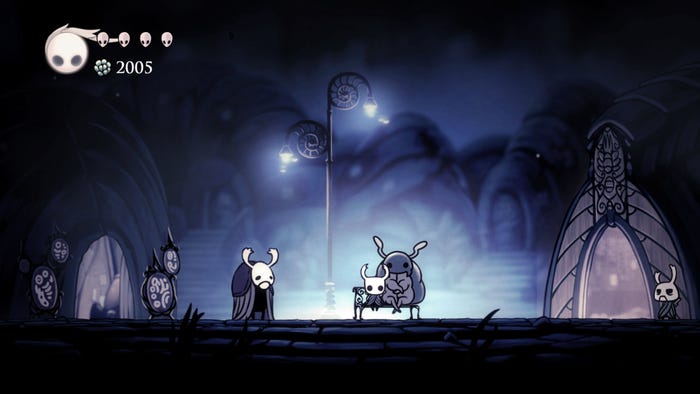Trending
Opinion: How will Project 2025 impact game developers?
The Heritage Foundation's manifesto for the possible next administration could do great harm to many, including large portions of the game development community.

Since the game industry’s early days, players have long relied on guides to help them progress in their favorite games. Developers do everything possible to deliver the needed information in a game itself, but many players inevitably turn to third-party resources. Publishers like Penguin Random House subsidiary Prima Games sold game guides sometimes in collaboration with the developers themselves.
The company couldn’t overcome the growth of the online guides ecosystem, which has grown from the player-created guides of GameFAQs to a host of websites and wikis answering every possible question a player might need after a quick Google search. It folded in 2018.
But online guides are beginning to eat themselves alive too. Content farms with loose plagiarism policies have gamed search engine optimization methods to supersede reliable sites in the search results of platforms like Google. Some use sponsored listings to make money, not reliability, as the means of attracting advertising eyeballs.
Even worse, some turn to generative AI tools to just spam seemingly useful information, accuracy be damned.
The degrading resources are beginning to have an impact on game communities. Some—like the organizers of the Hollow Knight Wiki hosted on Fandom—are taking dramatic steps to preserve these vital player-led resources. It’s a noteworthy shift that could change the future of video game communities, and how developers interact with them.
Fandom hosts more than a quarter million Wikis, which are walkthroughs or guides to help players get through or get the most out of games. Because of its size, it holds a large amount of influence over pop culture and is often first in a google search for the given game or property.
Wikis are public pages, fully editable by any user. As Maws, a wiki writer, put it, “If I write a section for Dream Nail (an ability in Hollow Knight’s wiki page) I’m not entitled to it. Anyone could walk in, wipe the slate, and write something better than that afterwards.”
It’s a communal process that ensures a competent end result, but like many passion projects that garner enough attention, the site the wiki writers had spent so much time on changed irrevocably when it was bought up by a private equity firm.
Fandom was first formed as Wikicities in 2004, and took on its current name in 2016 after being acquired by former AOL CEO Jon Miller, backed by private equity firm TPG Capital.
The for-profit model under private equity led to some very unpopular decisions for many community creators. Some, like the organizers of the Terraria, Legend of Zelda, Fallout and Minecraft wikis left the platform and changed domains.
After TPG Capital took over, the Hollow Knight wiki contributors saw their wiki’s quality decline as new restrictions were put in place, limiting their ability to fix issues the site itself was creating. “We tolerated it for so long because initially there was listening and feedback,” said “Zigmatism,” a wiki writer for the Hollow Knight community who asked to be referred to by their nickname.
“Before all of this, [Fandom] was *the* place for hosting a wiki if you didn’t have the resources to go independent.”
Many community editors decamped from the site after the unusually-named “The Grimace Incident” where Fandom removed an entire community-generated page on McDonald’s B-tier mascot Grimace and replaced it with an ad for its Grimace-themed milkshake, “the Grimace Shake,” which had a brief viral moment in 2023.
Image via Fandom.
“I can add [the content] back, but what’s the point if they’re paying a dude to undo it?” contributor Nathan Steinmetz said on X (formerly Twitter). His work had been wiped away by the advertising campaign. “It sets a bad precedent when any IP holder can approach Fandom and have user content suppressed and released with an ad.”
Eventually, the Hollow Knight community decided to join the exodus. Their complaints included a poor user interface and aggressive ads. In a post titled “Moving from Fandom,” the Hollow Knight contributors stated that the last straw was the “Quick Answers” feature, which used generative AI to ask and answer user questions. The tool was reportedly full of grammatical errors and pulled answers from unrelated pages. Community editors were initially unable to edit or remove the tool if they so desired.
The feature was pulled within 24 hours due to the backlash and is now optional for editors to use, instead of mandatory. But the damage was done.
Youtube creator Mossbag spotlighted the turmoil in his video, “Stop Using Fandom,” documenting that readers would be interrupted by links to articles from Fandom sibling organizations GameSpot and ScreenJunkies and be asked to take part in surveys, “creating a distracting, frustrating and slow experience for editors and readers alike.”
Zigmatism was sour on how companies like Fandom intend to use AI tools, saying they seemed designed to replace artists and writers instead of automating backbreaking labor.
Maws noted that it’s the reason for Quick Answers that bothers him: “(It was created) for Fandom to get additional revenue. It’s not just that the human element in “writing” is erased. It’s seemingly as if the only human element is from the guy who turns that feature on, and that’s that.”
With all this going on, it's no surprise that many communities would want to "fork away" from Fandom, migrating all their work to alternate platforms. In the aforementioned explanatory post, the Hollow Knight contributors wrote that they felt very little control over the content they created, stating, "Fandom does not care about the effort put into content, and will erase hours of work without a second thought."
The situation has improved, “raising the satisfaction level to what it should be,” according to Zigmatism, who also noted that would not have been possible without the immediate outrage and the threat to the company’s bottom line.
“I know [after multiple Wikis branched], Fandom went into a kind of all-hands-on-deck mode, listening to [and polling] editors and making some good changes overall,” he said. But he still believes independent, fan-hosted wikis are a better fit for developers looking to get involved, which tend to be a little more flexible and less profit-oriented.

Image via Team Cherry.
Any time a passionate group working on a project gains enough traction, there’s the possibility of it being bought up or monetized. That, in turn, carries the risk of degrading whatever made the original special, and in worst-case scenarios, key parts can get chopped off to be sold later.
"I love archiving knowledge, and I love promoting people's hard work," Zigmatism said, when discussing the new Hollow Knight wiki. "Wikis are a perfect mix of those two drives." "You can tell people actually care about what they're doing in (the new Hollow Knight) Wiki," added Maws.
There’s good reason for developers to be aware of this growing shift. Josh Zimmerman, a professor and community engagement consultant from the University of Arizona, explained to Game Developer via email that accurate, well-functioning, fan-hosted Wikis reinforce player loyalty in games through what he described as “fannish performance.”
He added that such projects can also serve as archives for games no longer in circulation or who are not playable in their original states thanks to years of bugfixes and content additions.
The experience of poor wiki tech on larger sites may drive away fans who are otherwise passionate about learning the intricacies of a game. Given the depth of work that goes into chronicling the ins and outs of a title, developers should be aware that players are becoming so frustrated they jump ship for a homebrewed platform.
It could get worse. If maintaining fan wikis becomes too arduous, fans might abandon the communities around their favorite games entirely.
Update 5/22: A previous version of this story incorrectly stated that Wikis were also known as FAQs, and that editing them required an account with a given page. We've updated this piece to correct these statements.
You May Also Like